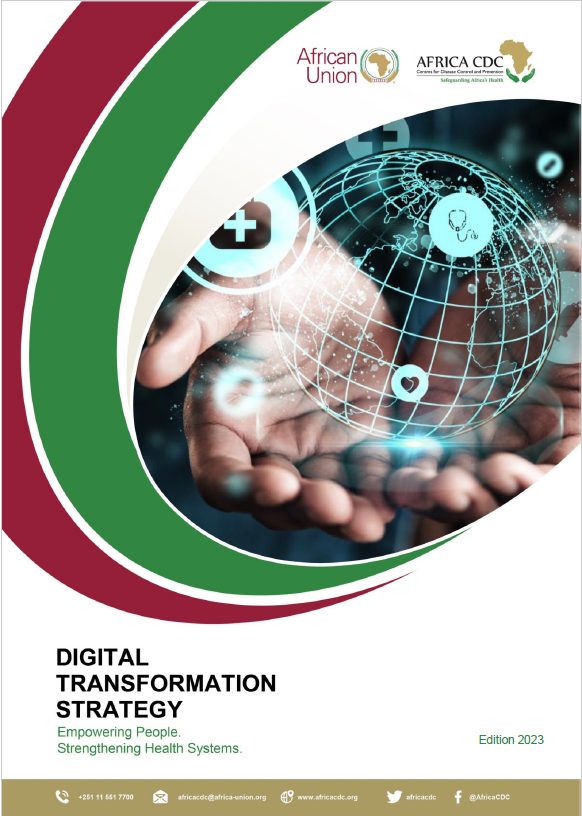INTRODUCTION AND SCOPE OF WORK
Africa CDC will support Member States in harnessing the potential of digital health to leapfrog some of the barriers affecting healthcare and public health while becoming a digital-savvy organization.
In recent years, digital transformation has emerged as a critical tool for enhancing healthcare delivery and improving health outcomes globally. The adoption of digital technologies in healthcare is transforming how health services are delivered, improving access and enhance the quality of care, improve accountability and reduce costs.
In Africa, where health systems1 are faced with numerous challenges, including insufficient funding, inadequate infrastructure, and shortages of skilled healthcare workers, digital transformation presents a unique opportunity to address these challenges and improve health outcomes for millions of people. Africa comprises 16 percent of the world’s population and carries 23 percent of the global disease burden, but in 2015 it accounted for only 1 percent of total global health expenditures. On average, the rest of the world spends 10 times more per capita on health care than Africa.
Digital technologies provide numerous opportunities to strengthen African health systems, from minor improvements to radical changes that, if well implemented, can help countries address some of the traditional barriers to meeting the health needs of the population, including collection, sharing and use of data as well as more efficient logistics and supply chains for improved healthcare and public health of African populations.
Some of the current transformative examples of digital technologies applied to health include electronic health records (EHRs), telemedicine and mobile health (mHealth), health information exchange (HIEs), precision and personalized medicine, digital supply chains and drone delivery of medical supplies or, in the field of public health emergencies, real-time analytics for early detection and contact tracing. Beyond these, other core technologies from the Fourth Industrial Revolution are advancing at a very rapid space. They include additive manufacturing, advanced robotics, artificial intelligence and machine learning, augmented and virtual reality, and the Internet of things. The promises are on par with the expected widespread change and upheaval.
